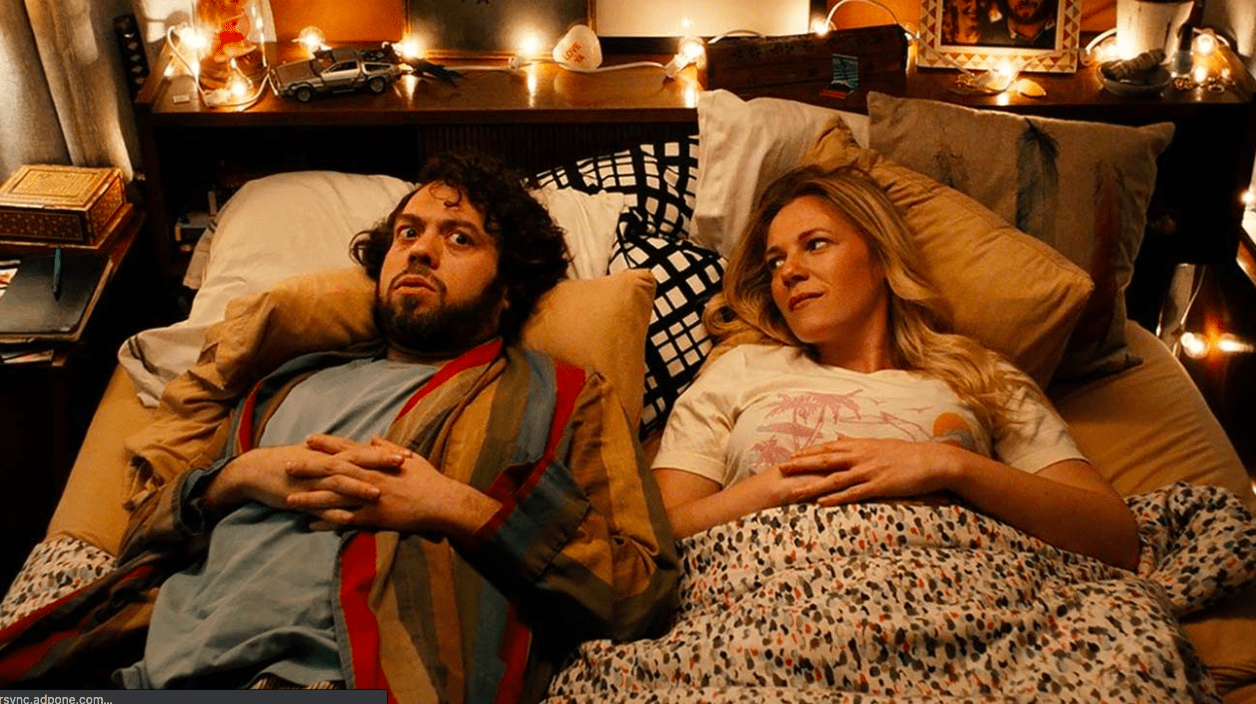
Earlier in the summer, Hulu dropped one of the unique versions of the time loop genre since Groundhog Day. Now only two months since Palm Springs made its mark, there’s another indie film that has spun its own vision of a time loop.
Perhaps that’s not necessarily its intent — as there is no sci-fi or supernatural element to it — as no one actually experiences their story on an infinite loop until they come across the flip switch via a change in morals or acceptance of the situation. Instead, this loop is a conscious decision made by a 30-something couple in hopes to solve who was right in the titular argument at their dinner party.
Jack (Dan Fogler) is a down-on-his-luck screenwriter who hosts an after-show party for his girlfriend Lisa (Emma Bell) coming off her first major acting role in a premier stage production. Some of the guests are welcomed more excitedly than others like Brett (Danny Pudi), Jack’s writing agent who keeps sidestepping the issue of helping Lisa find an agent. Meanwhile while Brett’s lawyer girlfriend Sarah (Maggie Q) is far less enthused to have sat through a boring play let alone fake her enthusiasm for Lisa’s success.
Adding to the drama, Lisa invites her co-star Paul (Tyler James Williams) which only reignites Jack’s jealousy which is shown in the opening scene as he fears a connection between the two. And just for the fun of it, Paul brings his Australian girlfriend Trina (Cleopatra Coleman), despite her not knowing anyone.
With tensions simultaneously high and dull, the night quickly escalates into an argument between Jack and Lisa which puts the kibosh on the affair. While everyone else leaves the apartment, the two come up with the idea to invite everyone back to re-live the night in hopes to uncover who was in the right or wrong in their spat.
Somehow everyone comes back to the apartment and rehashes every conversation and action through the night, only for things to go horribly wrong and then the cycle hits repeat, bringing out a deadness in everyone but Jack and Lisa still living to prove their innocence.
If any of that description feels to laborious, it’s because it is. Even the description of Trina as an Aussie becomes a relevant piece of info and plays off a brilliant entrance that introduces her half a dozen times. Each little piece lays the foundation for a foundation for what can only be described as a screenwriter’s dream montage to insert life and meaning to all of this.
And perhaps some of the characters are a bit one-dimensional like Sarah as a stoic businesswoman or Paul as a fitness fanatic on the cusp of national acclaim as an actor. But by keeping everything to the simplest terms — even the setting is largely trapped within four walls — writer Zac Stanford helps contain everything for a pivotal turn in events.
After a couple of re-enactments of the original party, Stanford and director Robert Schwartzman shift into high gear by turning the movie itself into a script through Jack’s point of view to become some auto-manifestation and critique of the whole creative process if not the movie itself.
What was turning into a repetitive story decides not to reverse script but to fully engage with itself in a new way to also help bring out the best in its performers as well and helps provide fresh performances from everyone that’s asked to repeat the same line over and over again. There’s only so many ways to relive those moments, yet this new perspective provides the platform.
There may be bit of a gradual dip through the first couples acts but once it hits the turn, The Argument is a new and exciting remix of a beloved genre.

